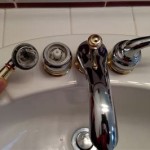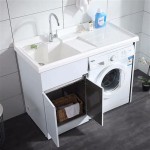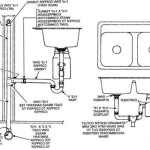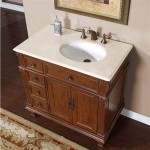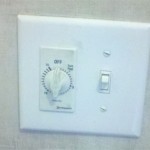Bathroom Sink Smells Like Rotten Eggs: Unveiling the Underlying Causes and Effective Solutions
When an unpleasant odor reminiscent of rotten eggs emanates from your bathroom sink, it's an indication that something is amiss. This distinctive smell can be attributed to the presence of hydrogen sulfide gas, a byproduct of anaerobic bacteria thriving in oxygen-deprived environments. Several factors can contribute to the formation of this gas, leading to the foul smell in your sink.
1. Stagnant Water: A Breeding Ground for Bacteria
Stagnant water in your sink, particularly in the P-trap, creates an ideal breeding ground for anaerobic bacteria. These bacteria decompose organic matter present in the water, releasing hydrogen sulfide gas as a byproduct. Regularly using your sink and flushing water through the P-trap helps prevent stagnation and the accumulation of organic matter.
2. Clogged Drains: Obstructed Flow and Bacterial Growth
Clogged drains hinder the proper flow of water, leading to water retention in the sink and P-trap. This stagnant water provides a conducive environment for bacterial growth, resulting in the production of foul-smelling gases. Addressing drain clogs promptly by removing hair, soap scum, and other debris ensures smooth water flow.
3. Dry P-Trap: Loss of Odor Barrier
The P-trap, a U-shaped section of the drainpipe beneath your sink, serves as an odor barrier. However, when the P-trap dries out due to infrequent use, it can no longer effectively prevent sewer gases from escaping into the bathroom. Filling the P-trap with water ensures it remains submerged, maintaining an effective odor barrier.
4. Corroded Pipes: Deterioration and Odor Leaks
Over time, the pipes connecting your sink to the drain system can corrode, especially if they are made of certain metals prone to rust. This corrosion creates cracks and holes in the pipes, allowing sewer gases to leak into the bathroom. Replacing corroded pipes with durable materials like PVC or copper can prevent these odor leaks.
5. Septic Tank Issues: Overwhelming Capacity and Gas Buildup
If your home uses a septic tank, an overwhelmed tank may lead to the backup of sewage into your sink, causing a rotten egg smell. The excessive organic matter in the tank can undergo anaerobic decomposition, releasing hydrogen sulfide gas. Regular septic tank maintenance, including pumping and cleaning, helps prevent such backups.
Effective Solutions for Eliminating the Odor
* Regularly use your sink and flush water through the P-trap. * Clean and unclog drains periodically to ensure proper water flow. * Fill the P-trap with water to maintain an effective odor barrier. * Inspect and replace corroded pipes to prevent gas leaks. * Ensure proper septic tank maintenance for homes using septic tanks. * Consider using enzymatic drain cleaners to break down organic matter and reduce odor-causing bacteria. * Pour a mixture of baking soda and vinegar down the drain, let it sit for a few hours, and then flush with hot water to neutralize odors.
What To Do When Your Drains Smell Like Rotten Eggs Black Haak

Why Do My Drains Smell Like Rotten Eggs

Your Toilet Smells Like Rotten Eggs Mr Rooter

Do Your Drains Smell Like Rotten Eggs Huft Home Services

How Can I Help A Stinky Bathroom Sink Drain Cleaning More

Why A Drain Smells Like Rotten Eggs Or Sulfur Mr Rooter Plumbing

Does Your Water Smell Like Rotten Eggs Treatment Test

How To Treat Sulfur Odors In Well Water Smells Like Rotten Eggs

Why Your Water Smells Like Rotten Eggs Sierra Air Conditioning Plumbing

What To Do When Bathroom Sink Smells Like Rotten Eggs
Related Posts

